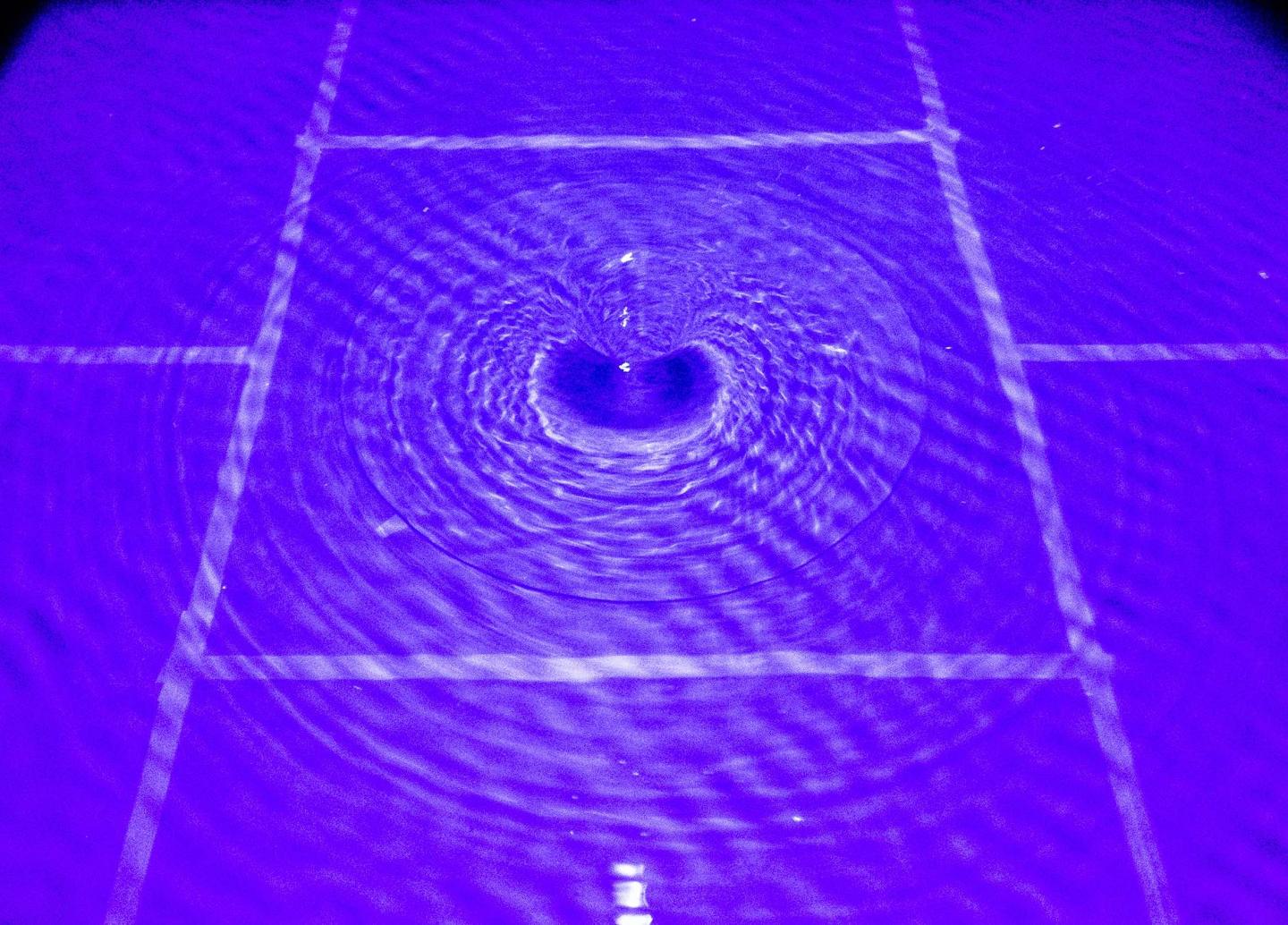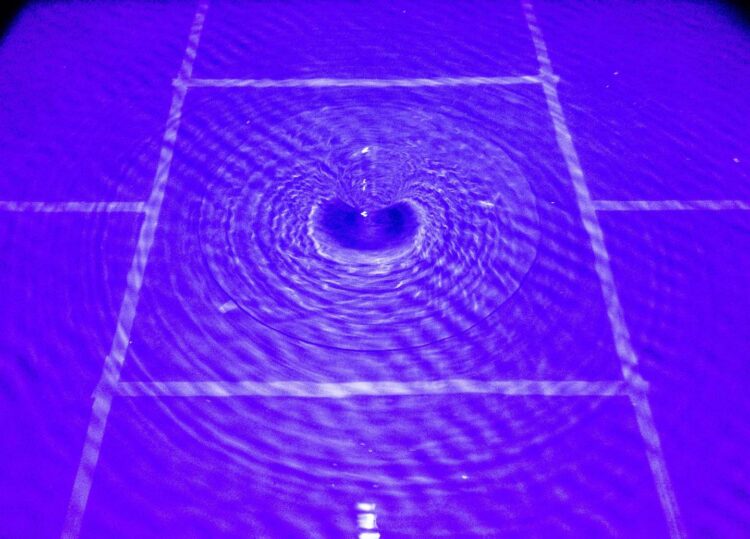
Credit: University of Nottingham
Scientists have revealed new insights into the behaviour of black holes with research that demonstrates how a phenomenon called backreaction can be simulated.
The team from the University of Nottingham have used their simulation of a black hole, involving a specially designed water tank, for this latest research published in Physical Review Letters. This study is the first to demonstrate that the evolution of black holes resulting from the fields surrounding them can be simulated in a laboratory experiment.
The researchers used a water tank simulator consisting of a draining vortex, like the one that forms when you pull the plug in the bath. This mimics a black hole since a wave which comes too close to the drain gets dragged down the plug hole, unable to escape. Systems like these have grown increasingly popular over the past decade as a means to test gravitational phenomena in a controlled laboratory environment. In particular, Hawking radiation has been observed in an analogue black hole experiment involving quantum optics.
Using this technique the researchers showed for the first time that when waves are sent into an analogue black hole, the properties of the black hole itself can change significantly. The mechanism underlying this effect in their particular experiment has a remarkably simple explanation. When waves come close to the drain, they effectively push more water down the plug hole causing the total amount of water contained in the tank to decrease. This results in a change in the water height, which in the simulation corresponds to a change in the properties of the black hole.
Lead author, Post-doctoral researcher Dr Sam Patrick from the University of Nottingham School of Mathematical Sciences explains: “For a long time, it was unclear whether the backreaction would lead to any measurable changes in analogue systems where the fluid flow is driven, for example, using a water pump. We have demonstrated that analogue black holes, like their gravitational counterparts, are intrinsically backreacting systems. We showed that waves moving in a draining bathtub push water down the plug hole, modifying significantly the drain speed and consequently changing the effective gravitational pull of the analogue black hole.
What was really striking for us is that the backreaction is large enough that it causes the water height across the entire system to drop so much that you can see it by eye! This was really unexpected. Our study paves the way to experimentally probing interactions between waves and the spacetimes they move through. For example, this type of interaction will be crucial for investigating black hole evaporation in the laboratory.”
Black hole research at the University of Nottingham has recently received a £4.3 million funding boost for a three-year project that aims to provide further insights into the physics of the early universe and black holes.
The research team will use quantum simulators to mimic the extreme conditions of the early universe and black holes. The Nottingham team will be using a new state laboratory to set up a novel hybrid superfluid optomechanical system to mimic quantum black hole processes in the laboratory.
###
Media Contact
Jane Icke
[email protected]
Related Journal Article
http://dx.





